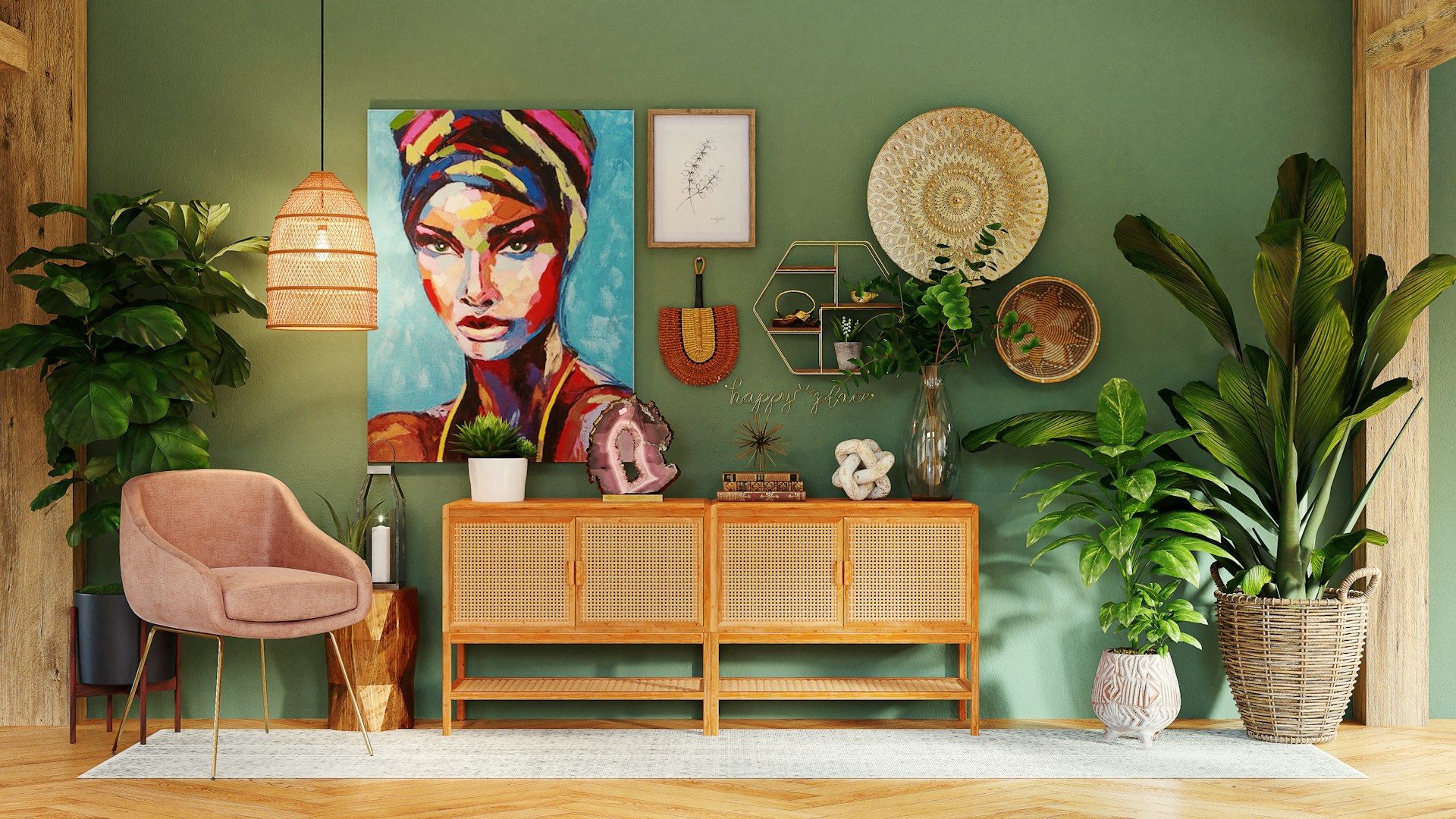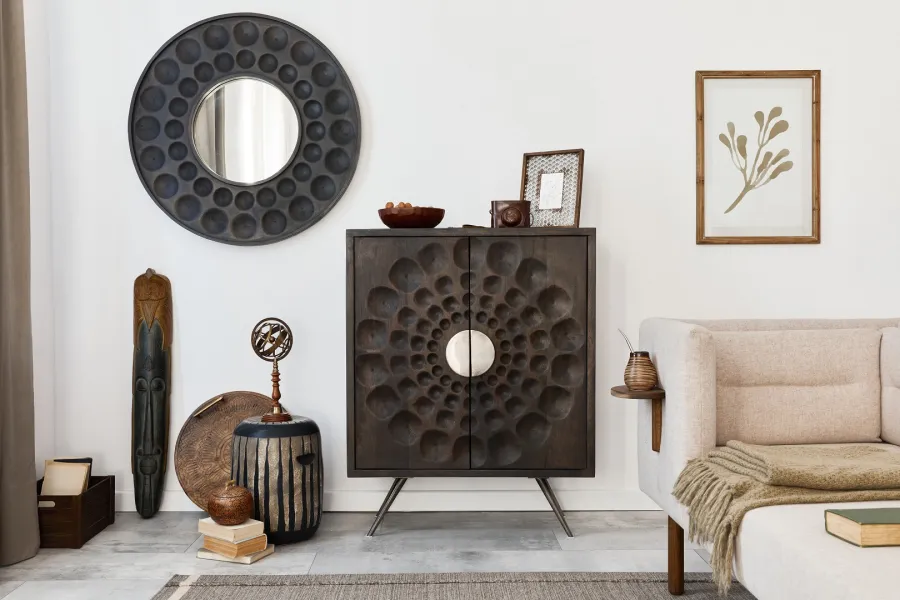
Blog
Where to place mirrors at home according to feng shui and how to choose them

Feng Shui, an ancient Chinese practice dating back to around 960 BC, has evolved, greatly influencing the field of modern interior design in many parts of the world. According to feng shui, interior design aims to create harmony between individuals and their indoor environments by relying on natural elements, such as: Wind, water, earth, and light.
The following lines focus on mirrors, which, according to Feng Shui, are more than just decorative elements, they are powerful tools that can dramatically affect the flow of energy within a space.
جدول المحتويات
All About Mirrors According to Feng Shui

Floor mirror, in the dining room (image from unsplash)
Where to put mirrors at home according to Feng Shui and how to choose them?
According to Feng Shui, mirrors are not just decorative elements, but are used to adjust the flow of energy within a space and achieve specific results. Mirrors symbolize the element of water, and can amplify positive energy and create the illusion of space. The reflective nature of mirrors means that what they reflect can enhance or diminish the energy in a room. For example, a mirror placed to reflect a beautiful view can amplify positive energy. Conversely, reflecting clutter or visible ugly areas through a mirror can increase negative emotions. Therefore, it is best to place mirrors thoughtfully. According to Feng Shui, it is imperative to:
- Placing a mirror in the dining room to reflect the dining table symbolizes the multiplication of food abundance, wealth, and prosperity. However, if the mirror reflects a pile of bills or a cluttered kitchen, it may inadvertently amplify financial stress or worries.
- Arranging a mirror, in the hallway, on a side wall, distributes energy throughout the house. However, you should avoid placing the mirror, directly facing the front door, as this can push incoming energy outward.
- When it comes to bedroom décor, the placement of mirrors requires careful thought, as calming energy is essential in bedrooms. Conversely, mirrors that reflect the bed can create too much yang (active) energy, which can lead to insomnia. If mirrors are to be used in this space, they should not directly face the bed.
- Mirrors can also effectively energize outdoor spaces. The presence of mirrors in your garden brings the energy of nature indoors, enhancing the sense of calm and peace in your home.
Mirror shapes and sizes

Wall-mounted round mirror (image from unsplash)
- It is also essential to keep mirrors in good condition. A clear, flawless mirror ensures a clear and positive reflection. Conversely, cracked or distorted mirrors can lead to a distorted perception of self and your environment.
- The shape of mirrors also plays a role in feng shui. Round and oval mirrors symbolize continuity and bring a sense of tranquility and completeness. Rectangular mirrors represent growth and expansion, making them suitable for living spaces. However, irregularly shaped mirrors should be avoided, as they can distort the flow of energy.
- The size of the mirror should be proportionate to the space and objects around it. A mirror that is too large or too small in relation to the space in which it is placed can disrupt the balance of energy.
- Having two mirrors facing each other can create confusing, disturbing energy, as the energy is reflected back and forth very quickly.
Unsuitable places for mirrors

The mirror should not be hung opposite the bed, according to feng shui (image via unsplash)
Mirrors can make a big difference in the decor of any room they are placed in, as they amplify light and make interior spaces appear larger, but there are places where mirrors should not be hung, according to Feng Shui, especially where they reflect negative or cluttered areas, such as: Trash cans or untidy corners, as this can multiply negative energy and create a sense of chaos in the space.
Therefore, you should not hang the mirror, in:
- A room that is frequently and continuously cluttered, such as: The laundry room, where dirty clothes pile up, or the children’s playroom, which is in a state of chaos most of the time, or any area of the house where things pile up… Because a mirror doubles the light, it will double the clutter in your home, if it is placed anywhere that is prone to “clutter”.
- Above or opposite the bed (or couch), it makes one distracted. Unlike feng shui, there is a practical reason: it is difficult to fall asleep when the light bounces off the mirror.
- In the kitchen, especially in front of a cooking oven, or anywhere known to emit fumes and smoke.
- In front of the front door. According to feng shui, if you have a mirror in front of your front door, right at the entrance, good energy may bounce out
In summary, while mirrors are useful, according to feng shui, overuse can lead to energy imbalances, feelings of confusion, amplified anxiety, or stress. So, balance is key.
